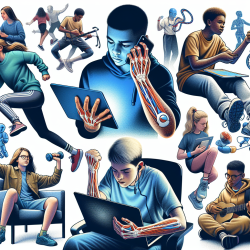Driving is more than just a mode of transportation; it's a symbol of independence and freedom. For individuals recovering from brain injuries, regaining the ability to drive can significantly enhance their quality of life. A recent study titled "The Relationship of Neuropsychological Variables to Driving Status Following Holistic Neurorehabilitation" sheds light on how cognitive functions and holistic rehabilitation programs can influence driving outcomes.
The Study at a Glance
This research involved 128 participants with various neurological conditions who underwent a comprehensive neurorehabilitation program. The study aimed to evaluate cognitive improvements and their correlation with driving status post-rehabilitation. Key neuropsychological variables such as attention, processing speed, and visuospatial functioning were assessed to determine their impact on driving capabilities.
Key Findings
- Cognitive Improvements: Participants showed significant progress in cognitive functions like attention, speed of information processing, and working memory after undergoing neurorehabilitation.
- Driving Outcomes: At discharge, 54% of participants returned to driving. Those who resumed driving demonstrated better performance in processing speed, attention, and visuospatial functions compared to non-drivers.
- Predictive Factors: Higher scores in working memory and processing speed were strong predictors of successful driving outcomes post-rehabilitation.
Implementing Research Insights for Practitioners
For practitioners working in neurorehabilitation centers, understanding the relationship between cognitive functions and driving abilities is crucial. Here are some ways practitioners can apply these findings:
- Cognitive Assessment: Regularly assess patients' cognitive functions using standardized tests to track improvements and predict driving readiness.
- Holistic Approach: Incorporate therapies that address physical, emotional, and cognitive aspects to enhance overall recovery.
- Compensatory Strategies: Train patients in compensatory strategies to overcome cognitive deficits and improve functional independence.
- Psychoeducation: Educate patients and their families about the recovery process and set realistic expectations for returning to driving.
The Future of Neurorehabilitation Research
This study highlights the importance of comprehensive neurorehabilitation programs in improving cognitive functions essential for driving. However, further research with larger sample sizes and diverse populations is needed to refine these findings. Practitioners are encouraged to engage in ongoing research to better understand the nuances of cognitive recovery and its impact on functional independence.
If you're interested in delving deeper into this topic, I highly recommend reading the original research paper: The Relationship of Neuropsychological Variables to Driving Status Following Holistic Neurorehabilitation.










